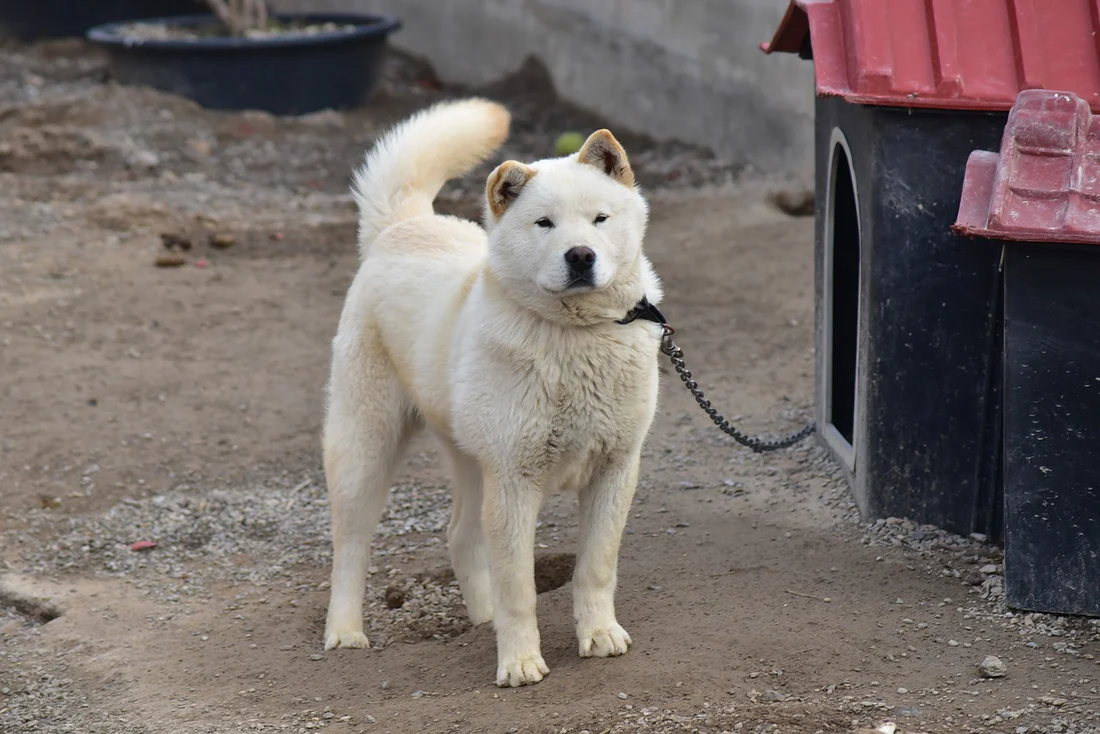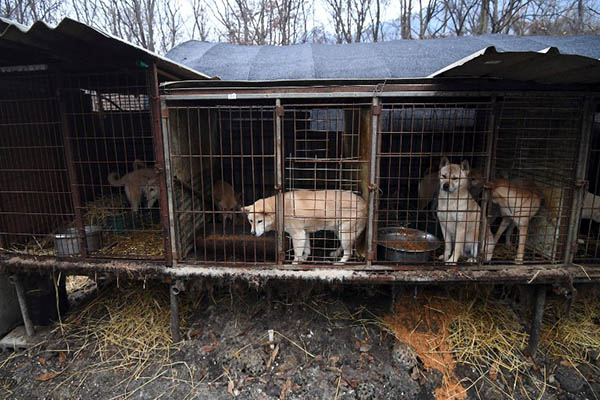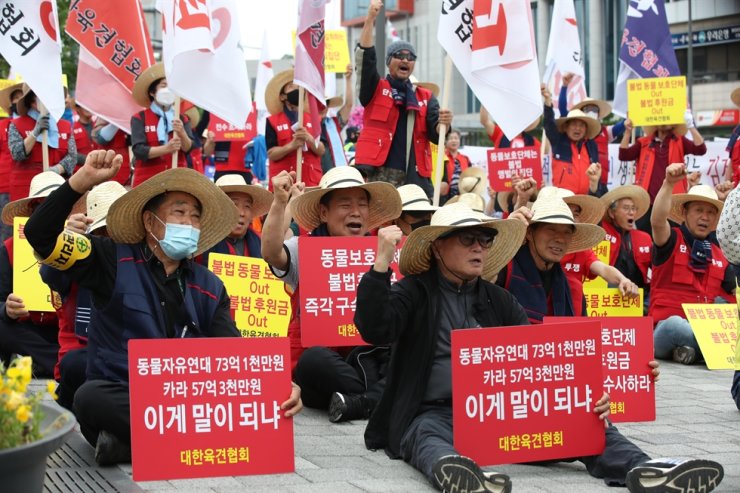Early in my tenure at Hansung Intellectual Property, I went to lunch once a week with the senior partners—boss-man Kyu-Pal Choi and three or four others. I usually followed along to whatever sikdang he had in mind. But once I surprised him with a suggestion: “Let’s have dog meat today!” He looked at me with a discerning eye and agreed. Within 10 minutes, we had entered an establishment specializing in that delicacy with which Korea is unfairly connected.
The time we spent there was unremarkable, and the bosintang (a stew containing boiled dog meat and vegetables) was, too; it tasted OK. I was monitoring my reactions closely, however, and I could not help noticing a rather queasy feeling in my stomach. Whether this was genuine or a psychosomatic response of some kind, I do not know. But I can tell you for certain that I have never had bosintang again. Nor have I been tempted to try gaegogi muchim (steamed dog meat with vegetables, leeks and spices), gaesuyuk (boiled dog meat) or gaesoju (a mixed drink containing dog meat, mixed with ginger, chestnuts and jujube).
Dog meat is alleged to have restorative powers on the hottest days of summer. More particularly, they say it gives a man sexual energy. Similar claims are made for red ginseng, grown in the mountains of Korea.
Even before I moved here in late 2007, I was familiar with the stereotype of Koreans eating dog meat. Jay Leno got countless laughs with this topic during his opening monologue on The Tonight Show. But Koreans are by no means the only offenders, as Chinese, Filipinos, Indonesians, Swiss, Vietnamese, Nigerians, Brazilians, Indians and others do the same. Consumption in some cases is legal, but breeding and sale is not—fine distinctions that are also applied in Korea.
An estimated 27 million dogs are eaten by people every year, and not all of them are Korean. So why does the stigma attach so strongly to this country? Scholars are perplexed, saying it was never a key part of the Korean diet. During the Silla and Goryeo dynasties, Buddhism ruled, and in that belief system the serving of vegetarian dishes was and still is favored. Neo-Confucianism was prominent in the Joseon dynasty, in which the prohibition against eating dogs was relaxed. During the privations of World War II, the Korean War and even through the mid-1960s, dietary niceties were not a major concern; survival was. When people are hungry, they will eat what is available and make no apologies for it.
Still, negative perceptions lingered. In the lead-up to the 1988 Summer Olympics, pressure was applied and drew a response; dog meat was not to be sold or consumed within Seoul’s four main gates. It was more of the same before the 2002 World Cup and the 2018 Winter Olympics. By then—nearly a decade after my lunch with Mr. Choi and the other senior partners—the country had changed, and the taboo against eating dogs had become stronger.
According to the Ministry of Agriculture, Food and Rural Affairs, there are currently 570,000 dogs on 1,100 (registered and unregistered) farms, with 1,600 restaurants having dog meat on their menus. PETA, Coexistence of Animal Rights on Earth (CARE), the Animal Welfare Institute and other advocacy groups say the numbers are smaller. But the Korean Association of Edible Dog and the Korea Dog Meat Farmers Association insist that 1.5 million dogs have been bred for this purpose, and there are 3,500 farms and 3,000 restaurants. Some polls say that 94% of Koreans are opposed to the idea of eating dogs, but others contend that it is barely half.
Critics, seemingly louder all the time, decry the methods of dog-killing—electrocution, strangulation, beating them to death or tossing them into boiling water, all followed by exsanguination. They say it is “inhumane,” but what about the cows, pigs, chickens, lambs, fish and other animals we think nothing of eating?
The number of Korean households with pet dogs has grown to 25%. Every day here in Seoul I see people walking their dogs, pushing them in strollers, holding them, cuddling them and so on. They would undoubtedly shudder at the fact that Labradors, golden retrievers, cocker spaniels, beagles, poodles and huskies can all end up in the cooking pot. Perhaps most upsetting is that not even the Jindo—the beloved white-furred dog from the island of that name off the southwest coast of Korea—is immune.
The trade has been curtailed by natural (the largest dog meat market, Moran Market, closed in 2018 due to declining sales) and governmental (the Taepyeong-dong slaughterhouse was forced out of business by the mayor of Seongnam) means. Over the last 10 years, restrictions have gotten tighter, and opprobrium against eating “man’s best friend” rose. Former president Moon Jae-in and his successor Yoon Seok-yeol have spoken in favor of eliminating the trade. When dog farmers learned in December 2023 that the National Assembly had plans to curtail their livelihood, they fought with police and demanded a fair hearing. They threatened to release two million dogs near lawmakers’ homes or around government landmarks. I can just imagine that happening at the Blue House, the five royal palaces and Gwanghwamun Plaza.
Finally, on January 9, 2024, the National Assembly passed a bill against selling and eating dog meat. Breeding dogs for consumption gets you three years in the slammer and a 30-million won fine. Eating dog meat, although technically illegal, carries no penalty. This bill, which has yet to become law, gives breeders, restaurateurs and consumers a three-year grace penalty, so it will take effect in 2027—assuming it is not overturned by the Constitutional Court.
“This is history in the making,” said Chae Jung-ah of the Humane Society International Korea. “We have reached the tipping point where most Korean citizens reject eating dogs and want to see this suffering consigned to the history books.”
For the sake of fairness, I will quote a statement issued by the Korean Association of Edible Dog: “Over 10 million Koreans still consume dog meat [a highly debatable assertion] and that’s why we―the dog farmers―create and provide over 70,000 tons of dog meat every year. Oppressing these people’s right to choose what they eat cannot be acceptable in a democratic society.”

The beloved Jindo—loyal, intelligent, brave and active…



Add Comment